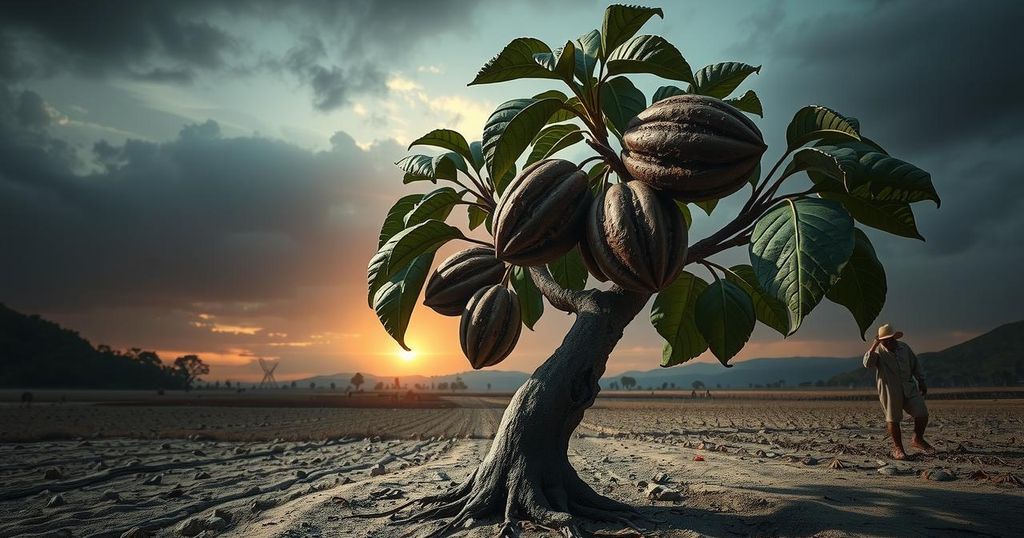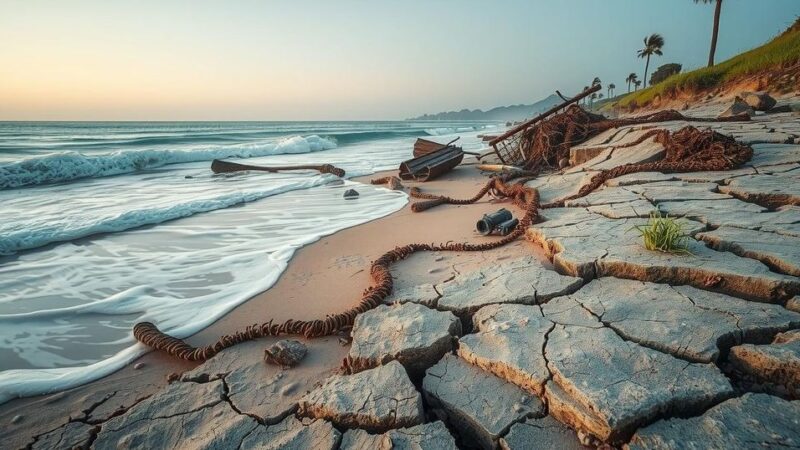Climate change is severely impacting cacao production in West Africa, causing crop stress due to record-high temperatures, disease, and irregular rainfall. Leading cacao-producing nations like Ivory Coast and Ghana face significant declines in both yield and quality, resulting in escalating chocolate prices. Experts warn of an impending existential threat to cacao cultivation if adaptive measures are not implemented swiftly.
Recent research highlights the devastating impact of climate change on cacao production in West Africa, a region crucial for chocolate. Rising temperatures have resulted in crop stress, subsequently affecting both the quantity and quality of cacao. Farmers in countries like Ivory Coast and Ghana are facing unprecedented challenges due to extended heatwaves, crop diseases, and irregular rainfall patterns, leading to concerns over food security and economic stability.
Experts note that the growing season in West Africa is now enduring an additional three weeks of extreme heat each year, significantly complicating agricultural practices. For instance, last year, temperatures soared above 32 degrees Celsius for over 40 days, exacerbating the stress on cacao plants. As a consequence, the global supply of cacao has diminished, causing fluctuations in chocolate prices, which have reached record highs.
The ongoing climate crisis poses an “existential threat” to the future of cacao crops, necessitating immediate action and adaptation strategies. Furthermore, with forecasts indicating escalating temperatures and increasing aridity, the sustainability of chocolate production is at a critical juncture. Without intervention, the livelihoods of many farmers and the global chocolate industry could face dire repercussions.
In conclusion, climate change is wreaking havoc on the cacao industry in West Africa, leading to decreased yields, lower quality crops, and rising chocolate prices. The region’s leading producers, including Ivory Coast and Ghana, urgently require support to implement sustainable practices that guard against climate variability. As the situation worsens, robust strategies and international cooperation will be vital to safeguard both the cacao supply chain and the livelihoods of those who depend on it.
Climate change is significantly undermining cacao production in West Africa, with dire consequences for the chocolate industry. The rising temperatures, coupled with unusual weather patterns and increased disease prevalence, threaten the quality and quantity of cacao crops. Urgent measures are needed to address these challenges, ensuring that farmers can adapt and that chocolate remains accessible in the future.
Original Source: www.ndtv.com






